Various railway employee unions have objected to the railway ministry's initial response to the West Bengal train tragedy when it prima facie blamed the driver of the goods train that hit the Kanchanjunga Express from the rear for the accident.

Ten people, including the driver, lost their lives and 40 were injured in the accident near New Jalpaiguri Monday.
The employees' unions said that squarely blaming the driver, who is not alive to defend himself, amounts to making him a scapegoat for the systematic shortcomings of the Railways.
"It was highly insensitive on the part of the Railway Board to say that the driver overshot the red signal which caused the accident," Shiva Gopal Mishra, general secretary of All India Railway Men's Federation, said.
"My advice to the Railway Board is that in such cases, instead of blaming any staff, they should wait till the probe concludes. I don't think that the driver was solely responsible for the accident," he said.
Mishra referred to various operating norms and questioned why the driver was authorised to cross all red signals in the section when there was a train in between them.
"The authority to cross the red signals should have been given only when the section (distance between the two stations) was clear and there was no train in between," he said.
The Railway Board admitted on Monday that there was a signal failure between the Ranipatra Railway Station and Chattar Hat Junction between which the accident took place.
The Board also said the station master of Ranipatra gave the goods train driver written authority to cross all red signals. However, the driver was supposed to move with 10 km speed with one minute stoppage at each red signal, it added.
According to the Board, he didn't observe the speed restriction and hit the Kanchenjunga Express which was waiting at one of the defective signals.
"The norm also says that when the section was not clear, the goods train's loco pilot shouldn't have been given the authority letter to move. So there are so many factors responsible for this accident and the Board should have waited till the probe," Mishra said.
M Raghavaiah, general secretary, the National Federation of Indian Railwaymen highlighted the issues of vacancy and stress on loco pilots.
"Fifteen percent posts of loco pilots are vacant. It is a critical category post. They don't get adequate rest as well as leaves to attend even their own social events," Raghavaiah said.
He added, "The difference in temperature inside and outside the engine is 3 degrees. These days when outside temperature is 48 degrees, loco pilots work in 51 degrees. The Railways had promised us that they would get air-conditioning installed in all engines but they didn't do that."
Raghavaiah also expressed anguish on the Board's initial response blaming the driver of the goods train and said, "No driver will violate the signal deliberately as he knows that he will be the first in the list of casualties. Instead of blaming the driver, improve their working condition, mental and psychological health and provide them adequate rest."
Sanjay Pandhi, working president of the Indian Railway Loco Runningmen Organisation, said the driver worked for four nights continuously and was not willing to take the trip but he was forced to do that.
"The driver reportedly did four night duties. I have come to know that he was reluctant to take the trip. This is against the rest norms of loco pilots," he said.
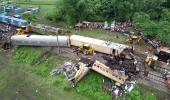
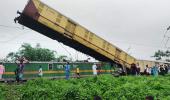
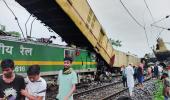





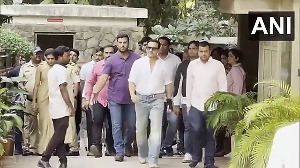
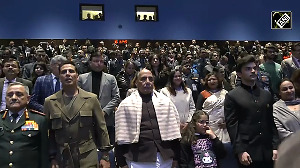
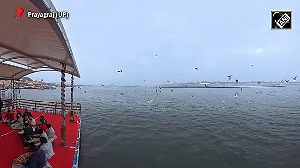
 © 2025
© 2025